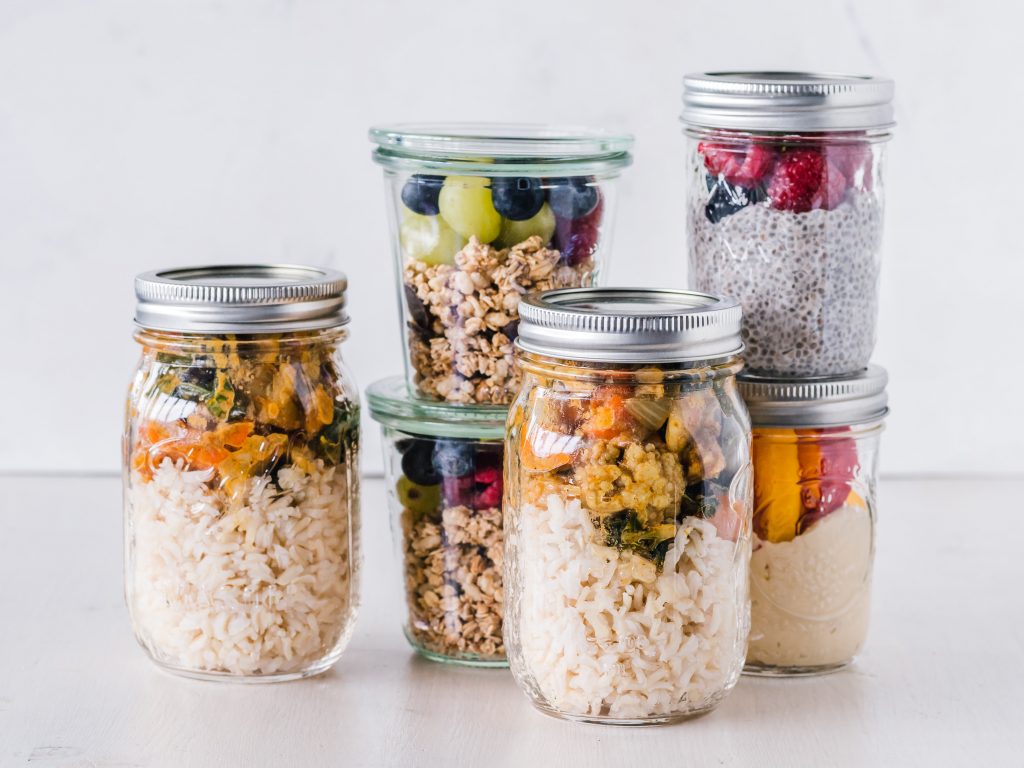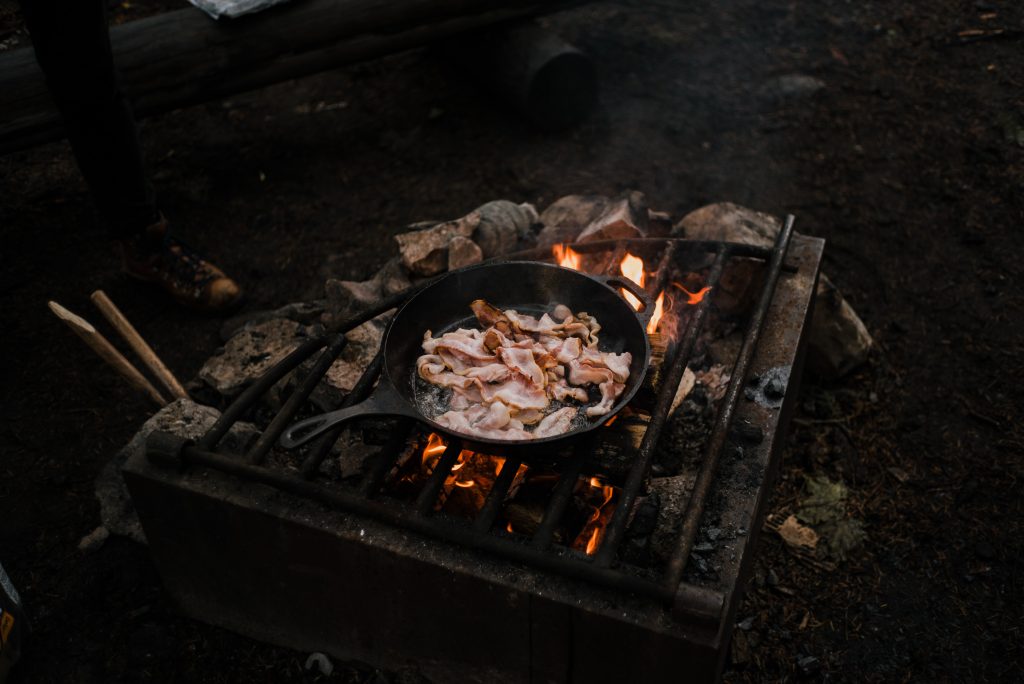There’s almost a certain art to making yourself a meal while you’re camping, because, let’s face it, we can’t eat s’mores for every meal. While cooking an essential skill to have, screwing up your planning or cooking can be disastrous and can leave you hungry and sad. Luckily, we’re here to help. We’ve got some tips for your next campground trip that can prevent you from certain cooking disasters.
1. Prep Everything You Can in Advance

It’s 2021, and most people prepare their meals a week in advance, so why should your camping meals be any different? Preparing for multiple meals a day can decrease stress in your trips and can make cooking your meals a breeze. Plus, it’s super easy to do. All it takes is pre-chopping your veggies/proteins, storing them in mason jars or Tupperware containers, then fitting them into a cooler like one delicious game of Tetris.
With proper meal-prepping expertise, you can make your next camping trip both delicious and stress-free…at least in the cooking department.
2. Freeze Your Food. It Won’t Ruin It
If you’re looking at camping for a long period of time, it’s not always going to be easy to keep your food cold and unspoiled for that long. It’s always a good idea to freeze your food. The negative connotations with frozen food are abundant, but we promise freezing your food won’t ruin it. It’ll actually increase the longevity of the foods, and it’ll make it even easier to cook. All you’ll need to do is put it in a covered pot, and it’ll reheat perfectly. Paired with that, if you keep the frozen items in a cooler with your other items, they can work double duty by keeping your other items cold, then when you need them, you can just thaw them.
3. If You Have Cast Iron, Bring It

Long story short, cast iron is perfect for cooking your food in the great outdoors, while remaining relatively cheap. The main reason for this is that cast iron is essentially indestructible. You can put it on an open grill, above an open flame, or even right on the coals if you really want to, and it will emerge basically unscathed while cooking your food evenly. Just make sure you bring a potholder so you can get it away from the fire without burning the living heck out of your hand.
Plus, cast iron is super heavy, so you can use it to fend off any wildlife that happens to take a liking to what you’re making.
4. Foil is Your Friend
If you don’t have any cast iron equipment, don’t fret, because amazing meals can be made by wrapping them in aluminum foil. While they may not have the crisp, burnt taste that you could get cooking with cast iron or straight on the grill, you can still make something delicious, and you get the added bonus of not having to do any dishes. All you need is some kind of pre-cooked protein, delicious veggies, and a little bit of spices to make a nice stir fry over a campfire. One of our personal favorites is:
- 1 Hillshire Farm smoked sausage, cut into slices
- Pre-cooked (frozen) shrimp
- 1 bag of baby corn
- 4 red potatoes, cubed
- 1/2 cup melted butter
- Cajun seasoning
Wrap all the ingredients in 2-6 aluminum foil packets, then season with seasoning. Then seal the foil packets and place above campfire for 40 minutes, flipping halfway through (or until potatoes are tender).
5. Heat a Pot of Water While You Cook

Whether you’re at home or in the wilderness, we can all agree that cleaning the dishes is the worst part about cooking. Unfortunately, the access to hot water is a lot more difficult when you’re out in the wild, which can complicate the dish washing process. However, there is still a solution.
While you’re eating your newest campfire creation, you can use the campfire to heat up a pot or bowl of water to help the cleaning process a little easier. We do recommend that you don’t quite get it to the boiling point. That will scald your hands, then dirty dishes will be the least of your problems.
6. Cover and Store Any Uneaten Food
Once you’re all done eating your delicious creations and everything is all cleaned up, the final thing you need to do is make sure everything is stored and covered, especially if you didn’t finish all your food. If you made a little too much, DO NOT just leave it sitting around, unless you want to attract some very curious, and potentially dangerous, wildlife. Regardless of how bad of an idea it might seem like, put all your leftovers back into the cooler to throw away when you get to an appropriate location to do so (home for most people).
